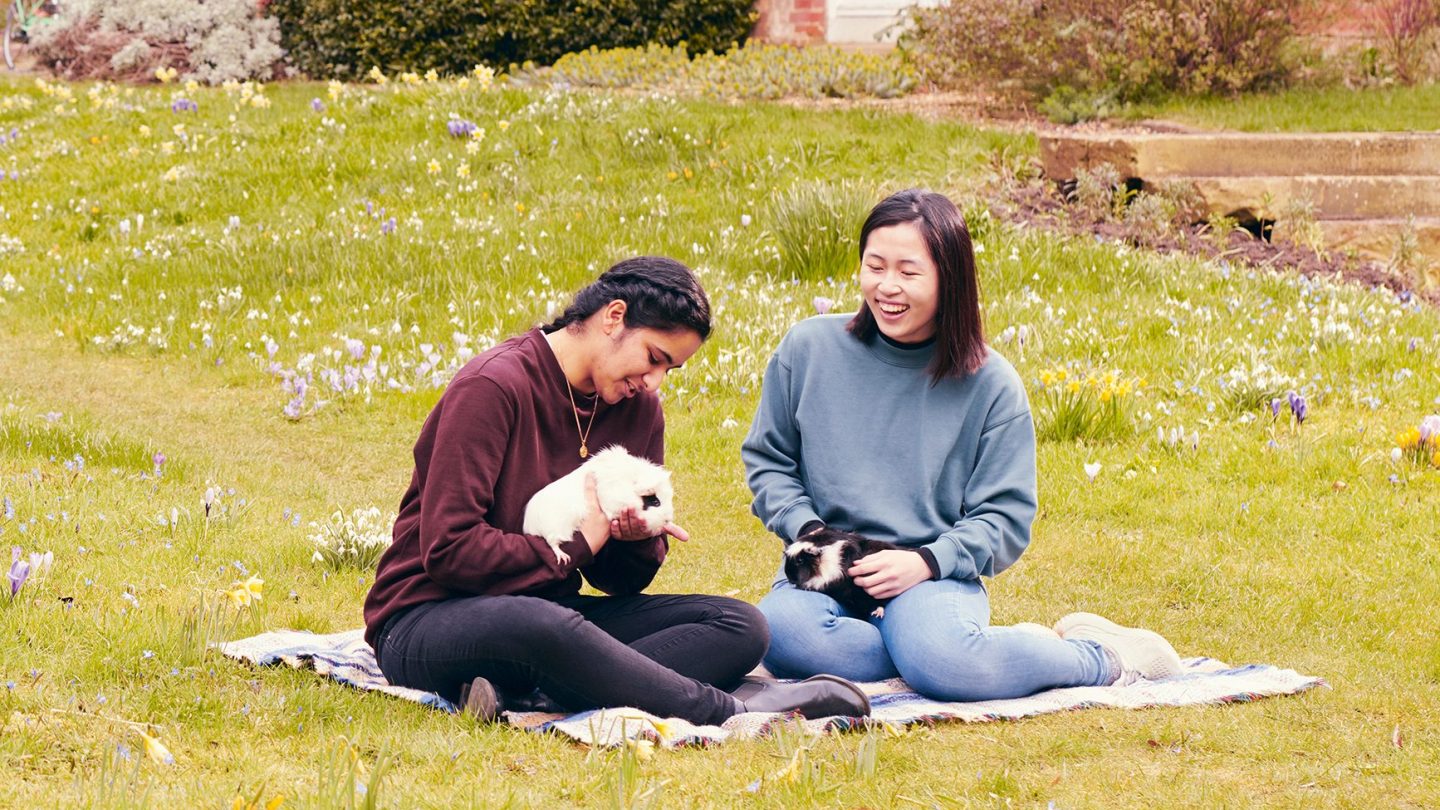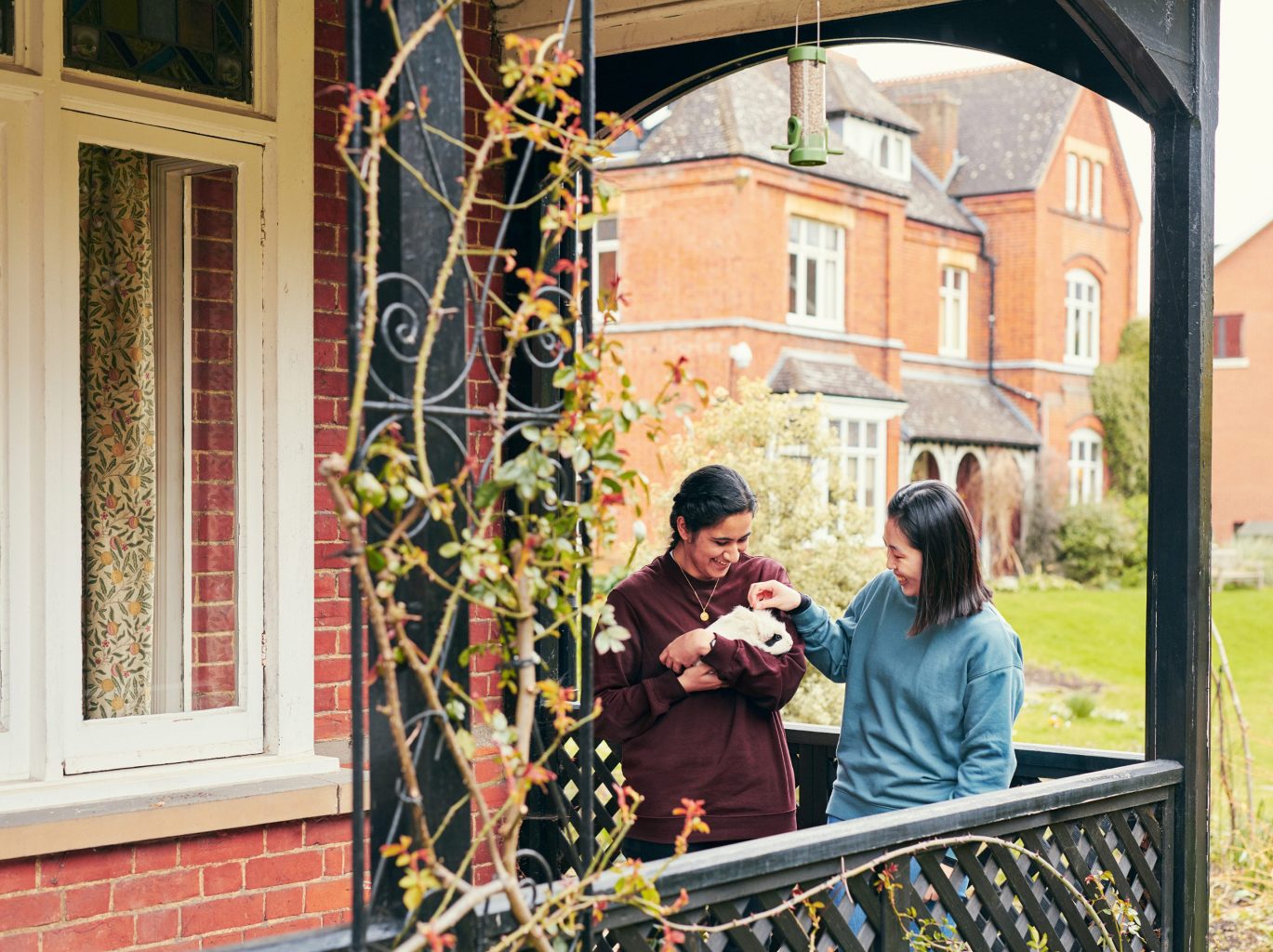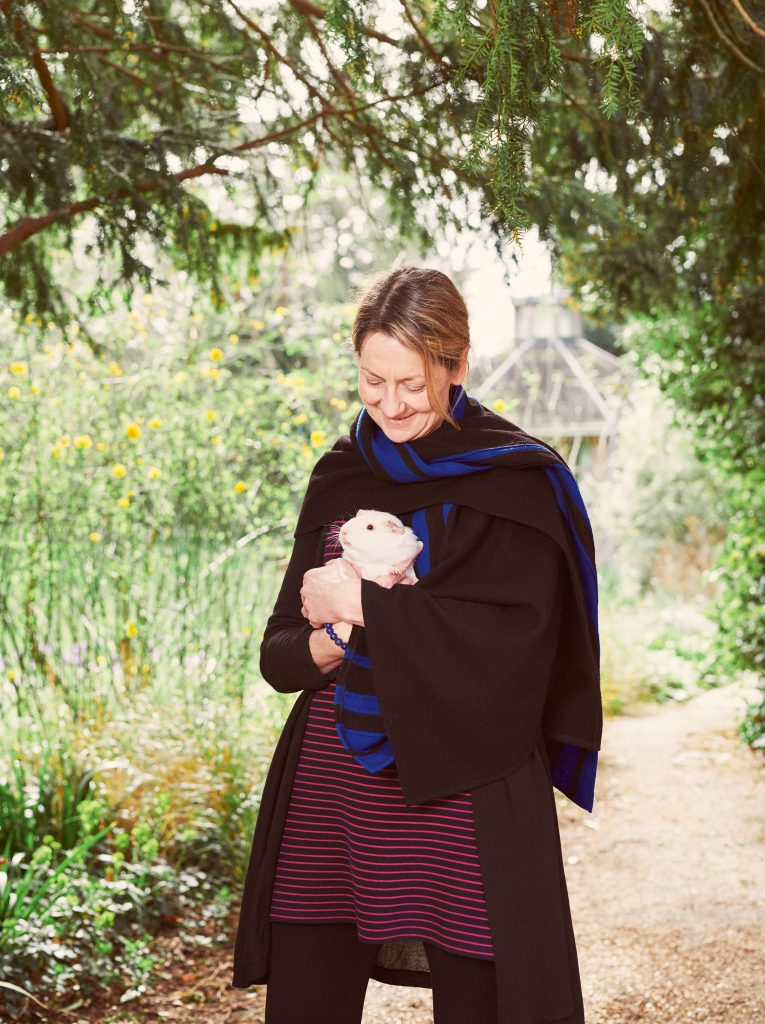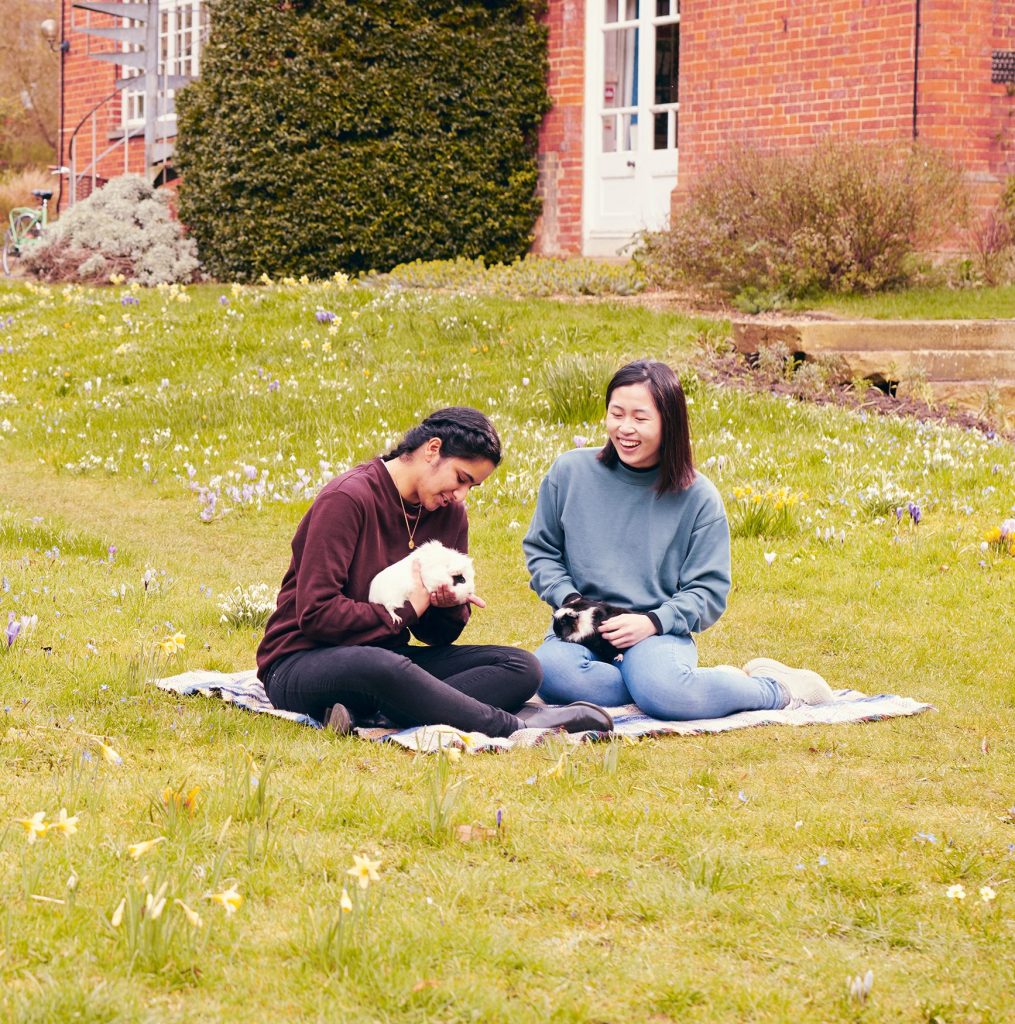
All the lonely people
Humans are social animals – so it makes sense that loneliness is bad for your health. But with so many of us affected, what can be done? CAM investigates.

It’s as bad as smoking 15 cigarettes a day. Worse than obesity. It may affect as many as one in three of us during our lifetime – and its causes and potential remedies are complex. Loneliness is hard to define, difficult to tackle – and dramatically bad for you.
It can be bad for you in surprisingly practical ways. Nita Forouhi, Professor of Population Health and Nutrition at the MRC Epidemiology Unit, is interested in how social relationships can impact lifestyle behaviours. With colleagues, she has examined the link between self-reported loneliness and food intake among those aged over 50, and found an important interplay between the two. People who lived alone and saw friends only infrequently consumed fewer fruit and vegetables than the more socialised – a phenomenon that was particularly marked in men. “Infrequent friend contact interacted with living arrangements to amplify the negative associations of living alone on the quality of participants’ diet,” explains Forouhi. “This suggests that social interventions could have a role in promoting healthy eating, which in turn has benefits for health.”
Unpicking the many causes and effects of loneliness is a vast, multidisciplinary enterprise.
And that’s just one impact. Unpicking the many causes and effects of loneliness is a vast, multidisciplinary enterprise. One of the most striking discoveries also comes from the MRC Epidemiology Unit and was published in Nature Communications last year. “The negative impacts of social isolation and loneliness on health are well documented,” the paper states. “However, little is known about their possible biological determinants.” In other words, could a person’s experience of loneliness have a genetic component?
Role of genetics
“There are some patterns of behaviour, patterns of personality, that have quite a big impact on disease, which isn’t often something you find geneticists talking about,” explains Senior Research Associate Dr Felix Day (the paper’s co-author, with Professor Ken Ong and Dr John Perry). “We were interested to see if there was anything we could do regarding loneliness. There had been some work with twin studies, but not a large-scale look at it.”
The Cambridge team analysed responses from more than 450,000 participants in the UK Biobank study. “The study had asked people whether they considered themselves to be lonely,” Dr Day says. “We then examined sites in the DNA and how they corresponded with loneliness, which helped us to identify particular regions of the genome – 15 genomic loci – that appeared to show that if you had a variant at that site, you were more likely to report being lonely. And there was an association.”

Taking that forward, establishing linkages, let alone cause and effect, is a complex process. But the team was able to demonstrate a likely causal association between adiposity – excessive weight – and a susceptibility to loneliness and depression. “We find signals in the genome, but it can be incredibly difficult to relate what these might be doing at a cellular or a tissue level to loneliness,” says Dr Day. “However, we know there is a middle factor, high BMI, that correlates with loneliness. Now, there is social discrimination based on body size. There’s evidence that people with higher BMI tend to do worse at school, and are earning less money during their lifetime [which could cause depression and loneliness]. So we have this apparent ability of genetics to show us something that usually seems like a purely sociological explanation.”
Role of geography
While Dr Day examines individual genes, psychologist Jason Rentfrow, Reader in Personality and Individual Differences, seeks clues to loneliness at the opposite end of the scale: in geography. The economic struggles of towns and regions that once drove the Industrial Revolution are well known. But Rentfrow’s work explores the lingering psychological traumas of these places.
“For most of us, just a few generations ago, our immediate environment was our entire world. That was what shaped us,” Rentfrow explains. “And it has impact. Whole cities were formed on coal, then, when other energy sources were developed, those communities were left behind. Some people leave but others stick around, or are unable to leave. Kids are then raised in areas of high unemployment, which will shape their perceptions of the world. People internalise these experiences.” The results, to this day, he says, are entire “regions of loneliness, unhappiness” in which people’s psychological wellbeing is influenced by the history and geography of where they live.
There are entire geographic regions in which people’s wellbeing is influenced by the history of where they live
Rentfrow is fascinated by the impact of surroundings more broadly, in the notion of ‘person-environment fit’. “People seek out particular types of environments that satisfy and reinforce their basic needs. In relationships, we might seek out partners and friends who validate our sense of who we are. In organisational contexts, we might seek jobs that play to our interests and strengths. In our living environment, do we have a garden? Do we have to commute long distances? We navigate the world to maximise the degree of ‘fit’ between ourselves and these environmental factors.”

A good fit will mean that we thrive. “But a failure to fit with our relationships, environment and employment,” says Rentfrow, “is correlated with lower life satisfaction. How might this apply to loneliness specifically? Evidence suggests that a poor social and environmental fit might make it difficult for us to form connections with others.”
Loneliness has a contagion effect, of sorts. Feelings and states can rub off on other people. The good news is that the same can be said for happiness
These new insights are enriching our understanding of long-established societal and circumstantial risk factors for loneliness. “Not having enough social support, worsening finances and being in chronic poor physical health can all increase your risk,” says Olivia Remes, a postdoctoral researcher at the Cambridge Institute of Public Health. And she says there is one further, surprising, risk factor. “The more time you spend around lonely people, the more likely you are to become lonely yourself,” she says. “It’s a contagion effect, of sorts. Feelings and states can rub off on other people.” The good news, Remes adds, is that “the same can be said for happiness”. Positive states of mind can also rub off.
Loneliness is often thought of as something that particularly impacts older people, but university students, away from home for the first time, can also be vulnerable, something seen first-hand by staff at the University Counselling Service. In addition to students who feel lonely because they struggle to make friends, Géraldine Dufour, Head of Counselling, says others “have friends and a busy social life but still feel lonely”.
She adds: “Sometimes it’s because they feel disconnected and that people do not really know them, only the face they present to the world; other times because they felt lonely growing up and can’t shake that feeling. Some students miss friends from home, or spend every spare moment studying and do not make space to connect with people.”

But, young or old, vital to combating loneliness is the forging of meaningful connections with others. Shortly after becoming an MP, Jo Cox (Pembroke 1992) established a cross-party Loneliness Commission with the then MP for South Ribble, Seema Kennedy (Pembroke 1993). After her death, the Jo Cox Commission on Loneliness was set up in memory of the murdered parliamentarian to take forward her work. It highlighted the estimated £2.5bn annual costs to employers of loneliness and the £32bn impact on the UK of disconnected communities. The commission also made wide-ranging recommendations for government and the voluntary sector. But the heart of its message was the importance of individual connections – “Combating loneliness one conversation at a time” was the title of its final report and call to action.
Remes agrees. “Begin talking to as many people as possible, wherever you are. And before you chuckle, think about it. How many times do you strike up a conversation with the cashier at the grocery store? Or someone at the bus stop? It’s often the simple steps that we take, on a consistent basis, that can be the most impactful.” And you won’t only be happier in yourself. That positivity, we now know, is catching.
Meet the guinea pigs of Lucy Cavendish
When Lucy Cavendish’s students – students like Bonnie Cheung and Taranpreet Bahra (pictured above) – feel stressed out they can reach for the camomile tea… or go visit the College guinea pigs. Emmeline Squeakhurst, Virguinea Woolf, Ruth Bader Guineasburg and Oreo (after the biscuit) arrived two years ago and are part of the College’s wellbeing strategy, as Dr Jane Greatorex, Senior Tutor (pictured above) explains. “We are dedicated to promoting mental wellbeing among our students. Numerous studies show the benefits of owning pets, including stress-relief, and our guinea pigs have been a huge success.” Nonetheless, Squeakhurst, Woolf, Guineasburg and Oreo are not the first guinea pigs to come up to Cambridge: in 1972, the College’s founding Fellow, Marion Clegg, used guinea pigs to help keep the lawns under control.
Read the University Counselling Service guide to overcoming loneliness and watch Olivia Remes’s TED talk on simple steps to tackle loneliness.







